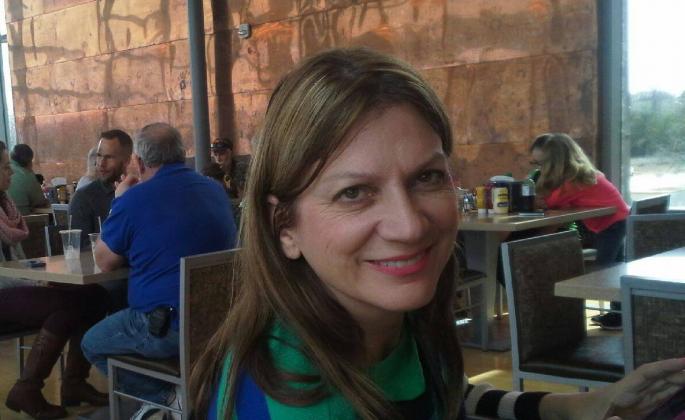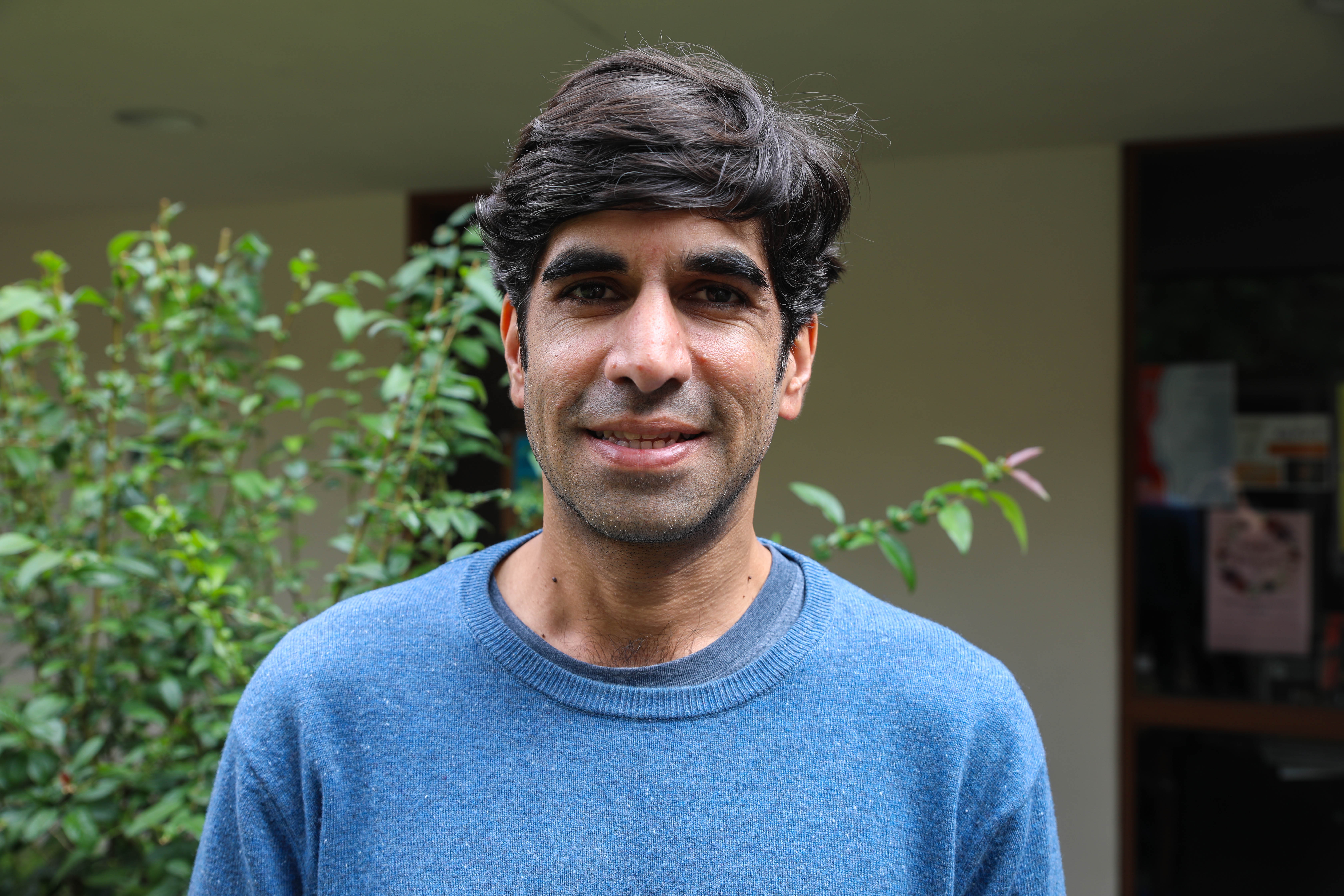Faculty Spotlight
 Wendy Ostroff Associate Professor of Cognitive & Developmental Science
Wendy Ostroff Associate Professor of Cognitive & Developmental Science
Professor of Cognitive & Developmental Science Dr. Wendy Ostroff was invited to be the author in residence at Slate School in North Haven, CT where she held a workshop for teachers on curiosity driven education.
Dr. Ostroff has also recently published the article "The Embodied Nature of Mathematical Learning" in the peer reviewed journal, Exchange.
Dr. Janet Hess awarded grant by the Association of Tribal Archives, Libraries and Museums
Professor Dr. Janet Hess, Sonoma State University's Native American Studies program and the Federated Indians of Graton Rancheria have been awarded $20,000 by the Association of Tribal Archives, Libraries, and Museums through the National Endowment for the Humanities' "Sustaining the Humanities through the American Rescue Plan" (SHARP). This grant, "The Federated Indians of Graton Rancheria: Food Sovereignty and Cultural Land Management Practices Lecture Series," will facilitate in-person public programming, including a nature preserve workshop, and virtual lectures on food sovereignty and cultural land management practices.
 Wendy Ostroff Associate Professor of Cognitive & Developmental Science
Wendy Ostroff Associate Professor of Cognitive & Developmental Science
Associate Professor of Cognitive and Developmental Science, Dr. Wendy Ostroff's new article "Losing Track of Time: The Young Child's Meandering Path to Deep Learning" has been published in the Bridging Research and Practice Series of the journal Exchange.
 Kevin Nguyen, Hutchins School of Liberal Studies STEM Education
Kevin Nguyen, Hutchins School of Liberal Studies STEM Education
Assistant Professor of STEM Education in Hutchins School of Liberal Arts, Dr. Kevin Nguyen has published his latest article titled "No Longer an Imaginary Case: Community, Plans, and Actions in Canoeing Rapids in the Journal of the Learning Sciences.
 Janet Berry Hess Professor of Art History/African and Diasporic Studies
Janet Berry Hess Professor of Art History/African and Diasporic Studies
Dr. Janet Hess was just awarded a California Humanities Relief Grant! . "In recognition that the COVID-19 pandemic has had a serious impact on the public humanities field across the state, California Humanities will direct funds from the federal American Rescue Plan Act of 2021, through the National Endowment for the Humanities (NEH), to meet the emergency needs of organizations in order to help sustain and grow the public humanities field in California"
 Kevin Nguyen, Hutchins School of Liberal Studies STEM Education
Kevin Nguyen, Hutchins School of Liberal Studies STEM Education
Assistant Professor of STEM Education in the Hutchins School of Liberal Studies, Kevin Nguyen writes about providing ways for STEM instructors to adopt active learning in their classrooms in the article "Instructor strategies to aid implementation of active learning: a systematic literature review" in the International Journal of STEM Education.
 Janet Berry Hess Professor of Art History/African and Diasporic Studies
Janet Berry Hess Professor of Art History/African and Diasporic Studies
Dr. Janet Berry Hess, has been busy with several new projects coming out Spring 2021. Her latest book Digital Mapping and Indigenous America (Routledge 2021), employs anthropology, field research, and humanities methodologies as well as digital cartography, and foregrounding the voices of Indigenous scholars. This text examines digital projects currently underway, and includes alternative modes of "mapping" Native American, Alaskan Native, Indigenous Hawaiian and First Nations land.
Dr. Hess also wrote a chapter on Ghana in an upcoming edition of The Architectural Guide to Sub-Saharan Africa (DOM Publishers: forthcoming 2021).
Last but not least is an article titlted “Mapping Indigenous American Cultures and Living Histories: A Gathering Place,” forthcoming in the ISPRS International Journal of Geo-Information special edition, “Mapping Indigenous Knowledge in the Digital Age” (April 2021).
 Wendy Ostroff Associate Professor of Cognitive & Developmental Science
Wendy Ostroff Associate Professor of Cognitive & Developmental Science
Associate Professor of Cognitive and Developmental Science in the Hutchins School of Liberal Studies, Dr. Wendy Ostroff, was recently interviewed for Aljazeera and CNN on isolation, stress and how to motivate students during the pandemice and distance learning.
Dr. Wendy Ostroff also has an article published in this month’s Educational Leadership journal called “Teaching Young Children Remotely”
"The COVID-19 pandemic has created a powerful naturalistic experiment. Thrust into a new reality, we now have the opportunity rethink both how we have been teaching and learning and how we want to teach and learn." Dr. Wendy Ostroff
 Kevin Nguyen, Hutchins School of Liberal Studies STEM Education
Kevin Nguyen, Hutchins School of Liberal Studies STEM Education
When did you first start thinking about Covid-19? I mean beyond responding to it in your daily life, sheltering in place, and in your professional life, reconfiguring your classes for remote instruction?As a social scientist, I started considering the effects of Covid-19 immediately. Early on I was especially concerned about how different cities, counties, states, and countries enacted policies in relation to Covid-19 and the variation of these policies. As results of Covid-19 testing came, it became especially clear how different policies (or lack thereof) created a very unequal distribution of Covid-19 confirmed cases. Before our very own eyes, we saw how research in public health, cultural practices, and perceptions of science confounded to create very uneven responses to the pandemic.
What were the research questions you were asking beforehand and when did you first start connecting Covid-19 to these questions?In general, my research examines how people learn and engage with science outside of school. Much of my current research examines how citizen scientists organize around water issues and conduct scientific practice. With the appearance of Covid-19, we now start to see the entire public grapple with scientific questions, concepts, and (mis)information. I thought about these research connections early on, as I saw how my own family members in Missouri were told, "it's no worse than the common flu." All of a sudden everyone is a potential citizen scientist--not out of curiosity or educational programming but because of a dire need to understand what is potentially happening to our bodies and the world. Knowledge of biological concepts, such as how viruses transmit or how your immune system responds becomes crucial information. Crucial information that is consumed very differently from say, a traditional undergraduate biology course. I can assure you that most American with even the slightest of symptoms has done the work of learning and researching scientific concepts of Covid-19. My personal research questions for these times are: how are American citizens urgently learning science to understand Covid-19? What does this look like? How can we support them?
What questions do you think you’ll be asking six months from now? I think my questions of how people learn and engage with science will mostly stay the same. However, the mode of my questions will likely be different. If anything, I'd expect to see more urgency in relation to how people learn and engage with science. Learning science becomes less of "checking the boxes of education" or a quirky interest and more of "how do I continue to engage in science so I have an important way of understanding the world?" A long-lasting theme might be urgency and science. If our American culture is not willing to learn or engage with science during a global health pandemic, then when will we learn?
 Ajay Gehlawat, professor of Theatre and Film in the Hutchins School of Liberal Studies
Ajay Gehlawat, professor of Theatre and Film in the Hutchins School of Liberal Studies
Ajay Gehlawat publishes "The Evolution of Song and Dance in Hindi Cinema"
Leading scholar of popular Hindi cinema, aka Bollywood, launches his third monograph.
This new edited collection is based on an international symposium held at SSU during the spring of 2017. Along with organizing this symposium, Ajay collaborated with the Green Music Center to help put together two related events – the West Coast premiere of the digitally restored version of Uday Shankar’s landmark dance drama Kalpana (Imagination, 1948) and the world premiere of Leela Dance’s classical Indian dance production, Son of the Wind. The ensuing edited collection, which features the work of leading global theorists and up-and-coming scholars, addresses the multiple histories and innovations of song and dance as manifested in Hindi cinema.
Gehlawat says, "It was a rich experience, blending academic discussion with live performance in an exemplary model of theory and practice informing one another in innovative ways."
Through the symposium and the ensuing performance by Leela Dance, we learned about the history and ongoing developments of Indian dance as they relate to Indian cinema and, particularly, to Bollywood, which is the most prolific cinema industry in the world. Ajay shared these insights with his students, who also attended these events, in my concurrent large-level GE course, LIBS 209: Bollywood and Globalization. Future students will also benefit from having the opportunity to read the essays included in his collection and study the related films and dance forms.
These events took place in the Student Center, the Green Music Center, and in Warren Auditorium, where he regularly teaches large-level GE film classes, including his course on Bollywood.
 Ianthe Brautigan Swensen Lecturer in Hutchins School of Liberal Studies
Ianthe Brautigan Swensen Lecturer in Hutchins School of Liberal Studies
Ianthe Brautigan Swensen, will executive produce with her husband, Paul Swensen the screen adaptation of the book The Hawkline Monster, which was written by Ianthe's father Richard Brautigan. There was a great article written up in the Hollywood Reporter in June about the project which was picked up by New Regency. You can read in the article about the challenges and difficulties that lead to finally producing the film which was published in 1974. This is a very exciting opportunity for Ianthe and a wonderful tribute to her father's legacy.
 Janet Berry Hess Professor of Art History/African and Diasporic Studies
Janet Berry Hess Professor of Art History/African and Diasporic Studies
Hess receives NEH Award to produce "IndigenousMap"
Janet received her J.D. at the University of Iowa with an emphasis on poverty law, her M.A. from Columbia University, and her Ph.D. in art history from Harvard University, where her advisor, Dr. Suzanne Blier, created a digital map, "Africamap." These experiences, along with teaching "Native American Culture" and "Unblocking Creativity," as well as publishing books on Native American issues and collaborating with Pomo/Miwok, Modoc and Osage tribal leaders, led to realizing her creative dream of creating a digital map of indigenous nations and living cultures. After working with Victor Temprano, the Canadian creator of "Native Land," she received an Innovation and Strategic Planning Grant from Sonoma State University and the School of Arts and Humanities, with the assistance of former Dean Thaine Sterns and creativity and innovative research focus of the Hutchins School of Liberal Studies. The Innovation Grant led her, in collaboration with an international Board of Advisors, to apply for a National Endowment for the Humanities Digital Advancement grant.
She is very grateful to have received an NEH grant for “IndigenousMap: Mapping Indigenous American Cultures and Living Histories.” This project will produce a digital map of indigenous tribal and national regions, cultural histories and non-archaeological data, focusing in its first stage on the California tribes of the Modoc and Pomo/Miwok, and the once dominant plains nation of the Osage. The map aims to provide an open-access, online map for the general public to engage with tribally approved data related to indigenous peoples of the United States. Its goal is to provide data from tribal museums, natural history and art museums, private collections, and regional libraries and digital archives in one location. "IndigenousMap" will strive to document the continued presence and vitality of indigenous cultures, and help protect imperiled cultural languages and practices, providing a more inclusive and nuanced vision of what is understood as "American" history.

